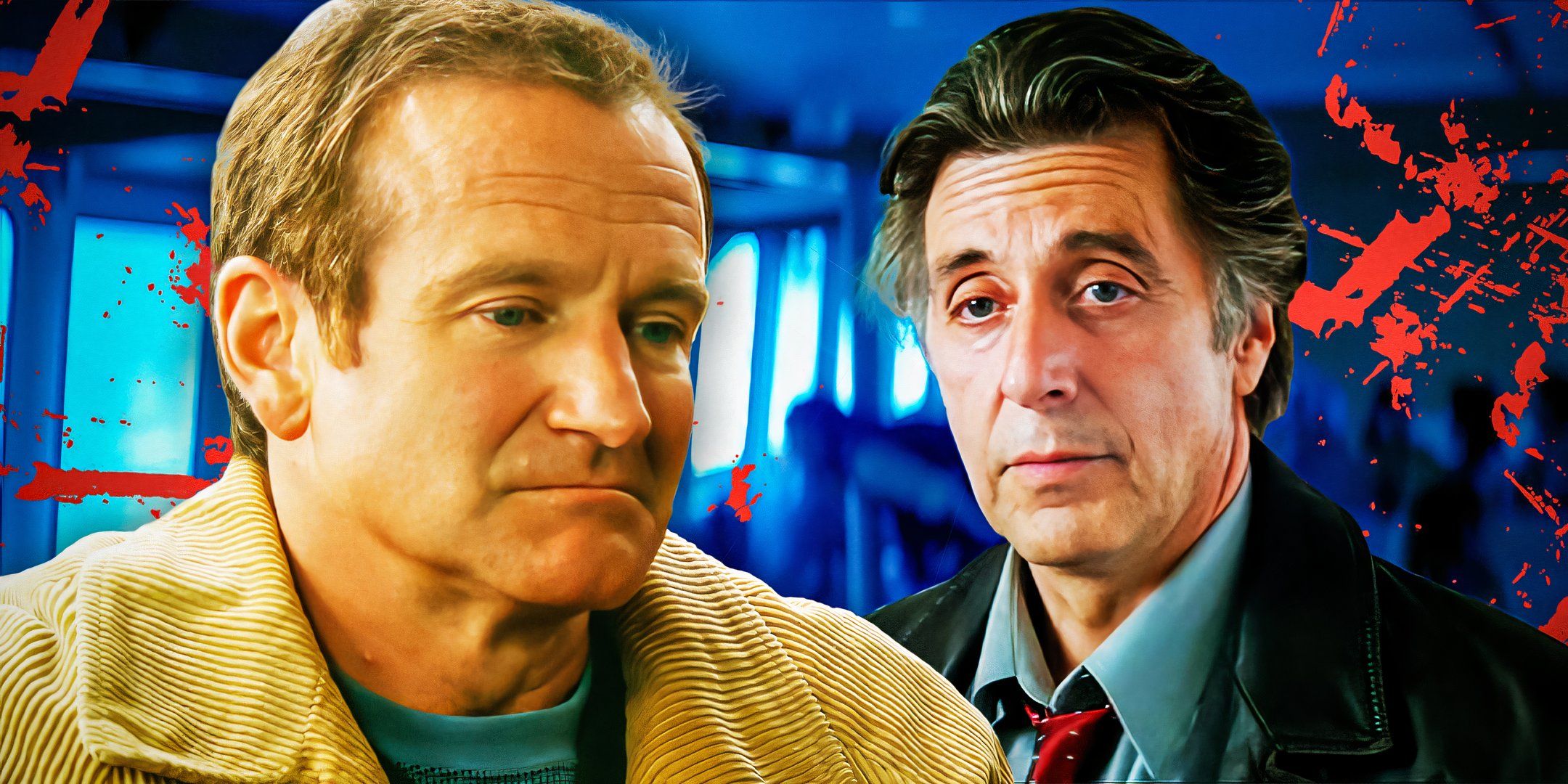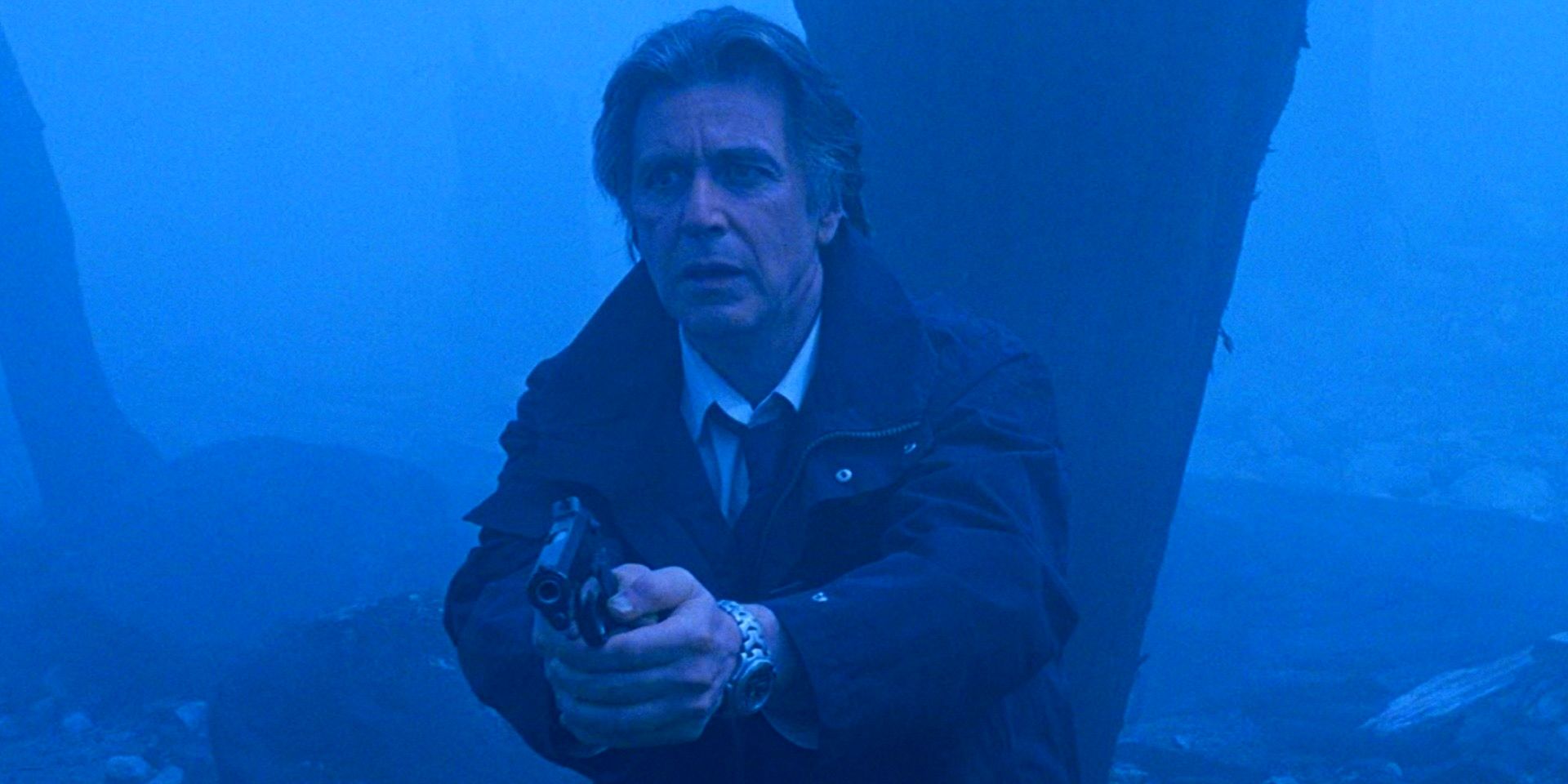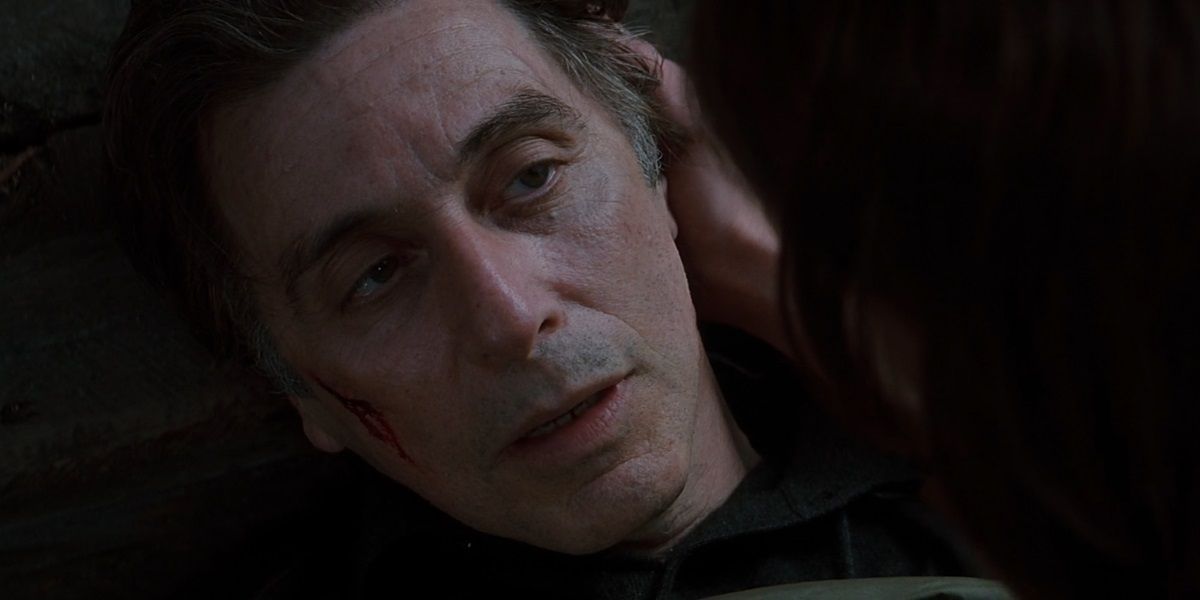
2002 Christopher Nolan thriller Insomnia is full of twists and turns that many of the director’s fans find entertaining, if not confusing. The film follows Detective Dormer (Al Pacino), who goes to an always-lit Alaska with his partner Hap Eckhart (Martin Donovan) and Alaskan Detective Burr (Hilary Swank) to investigate the murder of a woman. There, Dormer accidentally kills his partner and is tormented by the woman’s killer, Walter Finch (Robin Williams), who knows his secret. Insomnia doesn’t have a Christopher Nolan twist ending, but it does have a somewhat ambiguous final moment.
Insomnia is relatively simple with Insomniaactors and directors all with considerable experience in cinema. This professionalism and cinematographic setting made Insomnia a very beloved film, with one 92% on Rotten Tomatoes. Christopher Nolan himself considers the film underrated, overshadowed by his other great successes. However, Insomnia is especially memorable and moving in its final moments, though some are left wondering what Insomnia finish means.
What happens at the end of insomnia
Dormer and Finch’s deaths explained
At the end of Insomnia, Dormer lost all grip on reality and is almost too tired to function. He also confesses the details of his aforementioned internal affairs investigation, informing the audience of his concept of morality and his work. However, he realizes that Burr is in danger when she goes to see Finch to collect evidence and goes after her to help her. After a chaotic hallucination on the way to Finch’s houseboat, Dormer arrives just in time. He and Finch fight, resulting in both of them being shot. Finch dies immediately, while Dormer stumbles out of the house and finds Burr.
Insomnia was a remake of a 1997 Norwegian film of the same name.
At his side, Burr offers to help get rid of the bullet casing that linked him to his partner’s murder at the beginning of the film. But as a last wish, Dormer tells her not to get involved and let him sleep, which would mean finally ending the internal affairs investigation. The film ends as Dormer dies in Burr’s arms on the dock, and she looks at his body and the expanse of Alaska, thinking about what she’s going to do.
The Significance of Insomnia’s Alaska Location Explained
The setting emphasizes the feeling of isolation that torments Dormer
Insomnia takes place in the small town of Nightmute, Alaska. The somewhat barren but beautiful setting is established by shots of the detectives’ plane flying into the city. In this scene it is also shared that Nightmute is far from other cities emphasizing the remoteness and isolation of the place. Yet Dormer’s drama still follows him north. As the hotel owner tells you: “There are two types of people who live in Alaska: those who were born here and those who come here to escape something else.” It turns out that Dormer is the last.
Most notably, the film’s northern Alaska setting means the sun doesn’t set in the summer. This becomes an important plot point in the film, as Sleeper struggles to get enough sleep. Without sleep, Dormer loses focus and control of reality, which makes him dangerous. The setting also allows for exciting chase scenes and explorations of specific locations. This comes across in scenes like the chase over the floating logs or the chase in the fog, leaning into the particular qualities of the Alaskan setting.
Why Dormer hallucinates a truck
This shows that he is no longer in control of his life
At the beginning of the film, when Dormer takes Kay’s friend Tanya away from the funeral, he scares her by playing chicken with a truck on the road. He stays in the truck’s lane as they approach each other. Dormer does this to scare Tanya, goading her into telling the truth. It also shows how intense he can be. It works, as she soon reveals the truth about her strained relationship with Kay.
But later in the film, as Dormer drives to protect Burr, he sees the truck again. Sleep-deprived and mesmerized by the windshield wipers, Dormer looks at the road and sees a truck speeding toward him again. He swerves, turning the car to avoid the collision, only to realize there is no truck. This encounter with the semi also proves that Dormer can be intense, but It works to scare you into no longer trusting your own judgment. This shows that he is no longer in control like he used to be when he played with his and Tanya’s fate.
What do Dormer’s last words mean?
He asks Burr to let him sleep
At the end of the film, when Dormer dies in front of Burr, he asks her to “let me sleep.” Literally, this is a reference to the rest he will finally have after so many sunny nights in Alaska. Metaphorically, he also asks for rest from the stress and pressure he has suffered since the beginning of the Internal Affairs investigation. If Burr heeds his warning, the investigation will end with his death and finally be over.
Before this final request, he also tells Burr: “don’t get lost.“This refers to her promise to help him stay out of trouble by eliminating the evidence linking him to the crime. While it’s a nice gesture, Dormer knows this will lead Burr to the same stress and drama that has tormented him for the past year. He wants her to learn from him without following in his footsteps.
What happens to the bullet after insomnia ends?
Burr puts the bullet back in the evidence bag
Dormer stops Burr just before she gets rid of the evidence that will link him to her partner’s murder. When she is about to throw the cartridge into the water, he tells her not to get lost. After his death, there is a clear image of her putting the bullet casing back into the evidence bag. However, what she does with the bag remains unclear. It can be inferred that she hands over the bag as evidence, especially since, throughout the film, Burr establishes herself as a prominent police officer, implying that she would follow protocol.
Although she has a momentary lapse in judgment, offering to help destroy the evidence and protect Dormer’s name, she finds the way, just as Dormer asks. She realizes the long-term consequences of making hasty decisions in the moment. This relates to what Dormer concluded earlier, that what you thought was right at that moment is different from what you are willing to live with.
Why Finch calls himself “a wild card”
The author believes that all good detective cases have a wild card
As a writer, Finch insists he knows what makes a good detective novel: a “wild card.” For him, this means something that will put pressure on anything that gets in the way of his plans. In other words, it means something that can fool the police. Although this ends up referring to Kay’s boyfriend, whom he tries to blame for the murder, Finch also emphasizes that he is the wild card as he also misleads the investigation. He refers to himself as a joker several times throughout the film, including after revealing that he was recording his entire conversation with Dormer.
As he and Dormer fight at the end of the film, it appears that Dormer may have the upper hand, pointing his gun at Finch. However, Finch quickly pulls out a gun and warns Dormer that he “I forgot the joker,“again referring to himself and his unpredictability. This unpredictability is seen throughout the film, as Finch almost seems omniscient and everywhere. He calls Dormer at odd hours, knowing he is awake as if he can see him. He also always says he’s going to do one thing and often does another, taking advantage of Dormer’s delirious, sleep-deprived state. The repeated presence of the wild card stands out in Insomniaof final moments.
Insomnia, directed by Christopher Nolan, follows two Los Angeles homicide detectives sent to a northern city where the sun never sets to investigate the meticulous murder of a local teenager. The incessant daylight plays a critical role in the unfolding of the case and the psychological dynamics between the characters.
- Release date
-
May 24, 2002



